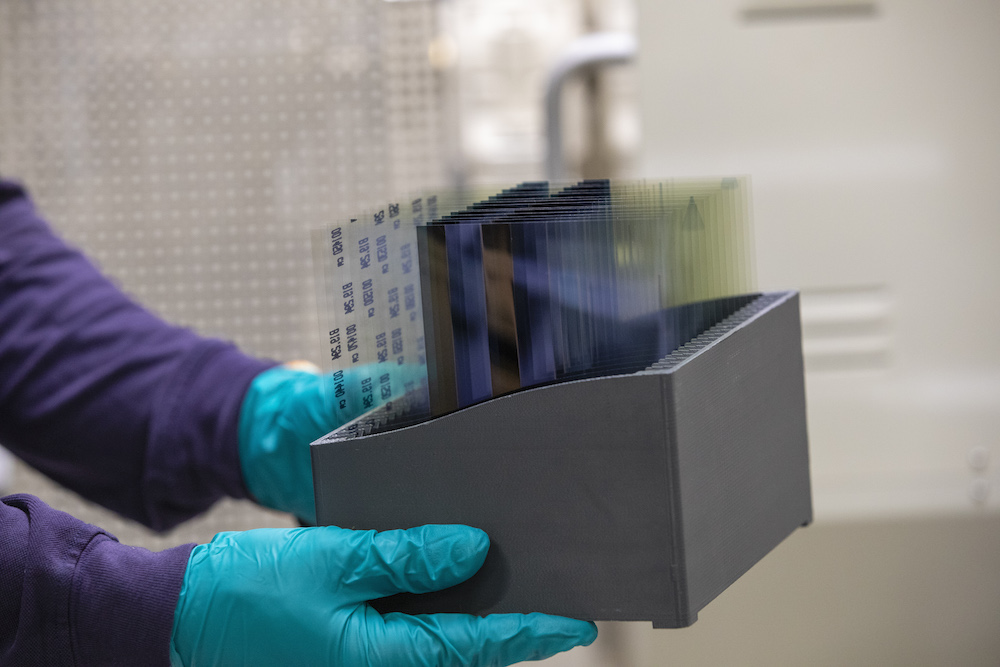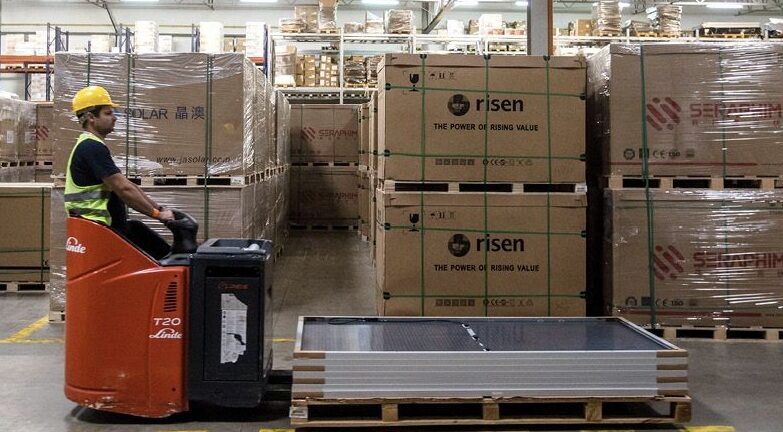From pv magazine France.
France-based organic PV module maker Armor solar power films claims to have achieved a 26% efficiency in low light environment for its flexible and semi-transparent ASCA organic photovoltaic film.
“The result was obtained internally with our R&D and measurement resources in partnership with our Taiwanese partner Raynergy Tek, specialist in organic semiconductor materials for the OPV, which supplied us with its latest generations of photosensitive polymers,” John Fiske, Armor director of business development for the sensors and internet of things (IoT) market segments, told pv magazine.
Samples of small polymer cells were tested in the Kitzingen, Germany, laboratory under a homogeneous LED light source of 1000 lux and at a temperature of 2,700 Kelvin. “The new efficiency doubles the indoor yield of our current standard modules,” said Fiske. As to when they can be implemented and marketed on production modules, the sales manager is considering a horizon of four to five years.
Currently, Armor's solar technology is mainly used to supply electricity to small connected objects indoors, in environments where the light is low (from 200 lux), such as temperature sensors, presence detectors, trackers for the geolocation of goods, medical equipment or people. “This makes it possible to make them completely autonomous or at least to improve their autonomy to increase their lifespan and reduce maintenance and battery change,” Fiske stated, adding that Armor solar power films has installed its ASCA organic photovoltaic film at its industrial site, which supplies sensors that monitor the ambient temperature and humidity of the production line in real time.
“This new energy efficiency also gives us the possibility of using our organic PV devices on more energy-intensive electronic products, such as smartwatches or other sensors monitoring vital signs,” Fiske added.
According to the German statistical institute Destatis, quoted in a press release published by Armor, the market for connected objects is growing. It is estimated that 127 new devices are connected every second and that there will be 75 billion connected objects in service in the world by 2025. For the Nantes-based company, it is therefore urgent to respond to the environmental challenge represented by manufacturing and recycling those billions of non-rechargeable batteries and making this electronic equipment more self-sufficient.
This content is protected by copyright and may not be reused. If you want to cooperate with us and would like to reuse some of our content, please contact: editors@pv-magazine.com.




1 comment
By submitting this form you agree to pv magazine using your data for the purposes of publishing your comment.
Your personal data will only be disclosed or otherwise transmitted to third parties for the purposes of spam filtering or if this is necessary for technical maintenance of the website. Any other transfer to third parties will not take place unless this is justified on the basis of applicable data protection regulations or if pv magazine is legally obliged to do so.
You may revoke this consent at any time with effect for the future, in which case your personal data will be deleted immediately. Otherwise, your data will be deleted if pv magazine has processed your request or the purpose of data storage is fulfilled.
Further information on data privacy can be found in our Data Protection Policy.